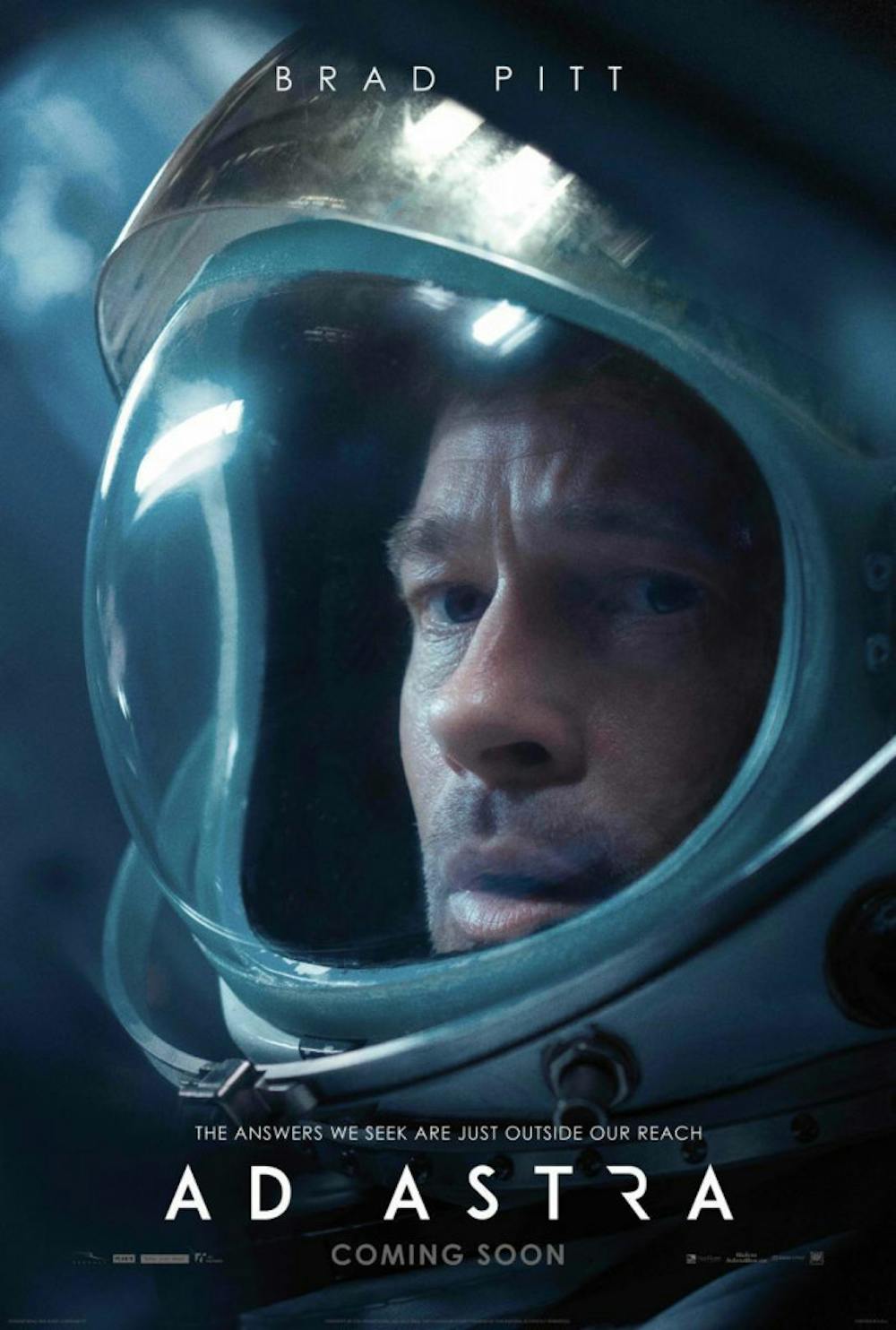The infinite expanse of space cannot compare to the vastness of our internal psyche. Stripping away the foreign reality apparent in sci-fi genre pieces, James Gray’s “Ad Astra” (2019) faces inward, focusing on the interior of the mind rather than the modern, technological exterior of its surroundings. “Ad Astra” is a battleground; an unflinchingly calm exterior braces against its chaotic, uninhibited interior.
“Near Future.” The film opens with this simple phrase, suggesting nothing more than a setting for its plot, yet it serves as a frame for the film’s production design and much of its tonal design. Right from the start, it is clear that “Ad Astra” defies genre norms in its portrayal of the future. The nearly identical cities and landscapes of the film place it within decades of our time. The advancements in technology are natural and purposefully familiar. Travel to the moon has become commercialized, closely resembling the commercial flight of today’s air travel. The International Space Station has been converted to an International Space Antenna (ISA) and its astronauts are more akin to telephone pole technicians than anything else.
In the opening scene, when an explosion along the ISA sends its astronaut technicians into a downward plummet towards Earth’s surface, CGI footage of the futuristic structure is blended together with real shots of skydiving to blend the future with the present. The film’s setting is subdued, retaining its focus on its protagonist Roy McBride (Brad Pitt), for at its essence “Ad Astra” is a deeply introspective character study.
Roy is the son of legendary NASA astronaut Clifford McBride (Tommy Lee Jones). He is a Major in his own right, living under the towering shadow of his father’s pioneering venture to the limits of our solar system in search of life, which resulted in his disappearance. Thirty years later, Roy is called in to make contact with him after a series of electrical surges is linked to his father’s spaceship.
Roy is calm beyond belief, calculated to a point of inscrutable precision, and can compartmentalize in such a way that he is completely walled off from any emotion. Yet there emerge moments of glaring vulnerability, when his chaotic and unrestricted inner world overcomes his stoic façade.
Throughout the film, Roy is required to complete minute psych–evaluations to assure his capacity to fulfill the duties of the mission. Through these updates, the audience is able to hear from Roy directly regarding his mental state. Paired with a thoughtful narration, “Ad Astra” uses Roy’s voice to focus the audience’s attention unwaveringly on its protagonist, drawing them nearer with each heart rate test and daring them to find fault or deceit in Roy’s psychological confessions. The viewer is forced to align their perspective with Roy’s, watching his decision–making with a magnifying glass, scrutinizing his every momentary expression for clues into his psyche. Though he is constantly telling the audience through his voice precisely and poignantly how he feels, it is through his actions that the audience can make their judgments. “The flight recorder will tell the story,” Roy remarks after an inflight conflict leaves him (and the audience) reeling. “History will have to decide,” he continues, acknowledging the audience’s role as juror.
“Ad Astra” is a meticulously crafted character study that reveals the constant struggle between the inner self and the self portrayed to the outside world piece by piece, never divulging too much information at a time. There is a sense of atmospheric ambiguity about the film, one which leads the viewer along a journey of moral unease, a journey of internal dilemmas played out on the galaxy’s amphitheater. “Ad Astra” disorients and unnerves, offering up a timeless quest not into the vast expanse of space, but instead into the unending plane of our own consciousness. It asks deeply evocative questions of moral and ethical importance. In understanding “Ad Astra” and its protagonist Roy, audiences seek to comprehend their own ideological foundations, looking outward towards the stars to find our inner self.

Owen Mason-Hill ’22 is the Senior Arts & Culture Editor.
He previously served as a staff columnist, writing film reviews under the Reel Critic column. Mason-Hill is studying for a Film and Media Culture major, focusing his studies on film criticism and videographic essays.
His coverage at The Campus focuses primarily on film criticism, and has expanded to encompass criticism of other mediums including podcasts, television, and music under his column “Direct Your Attention.”




